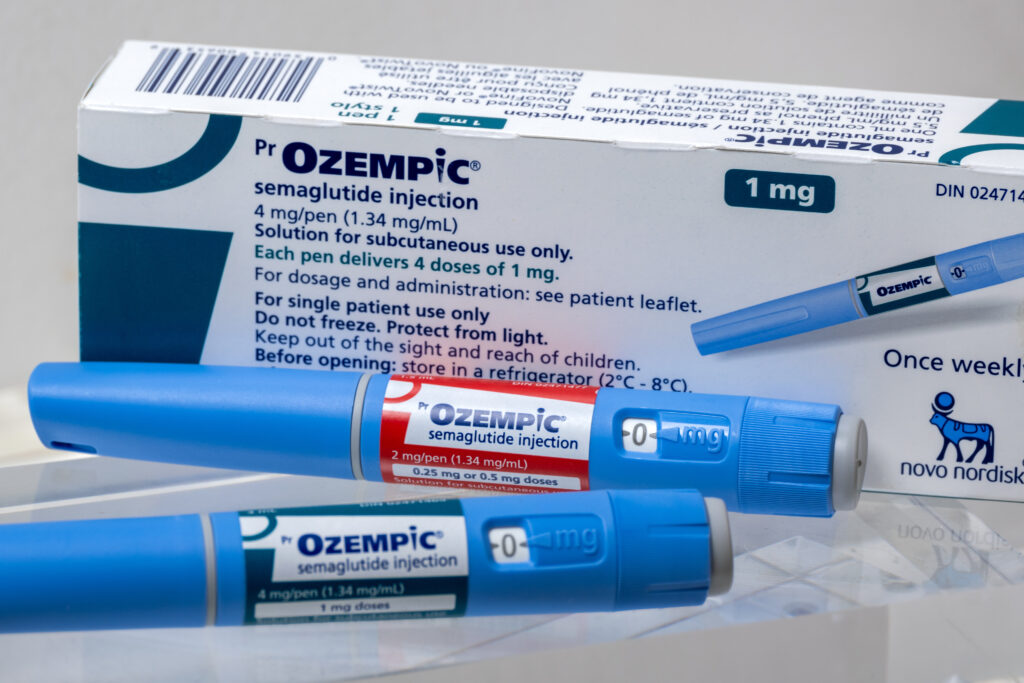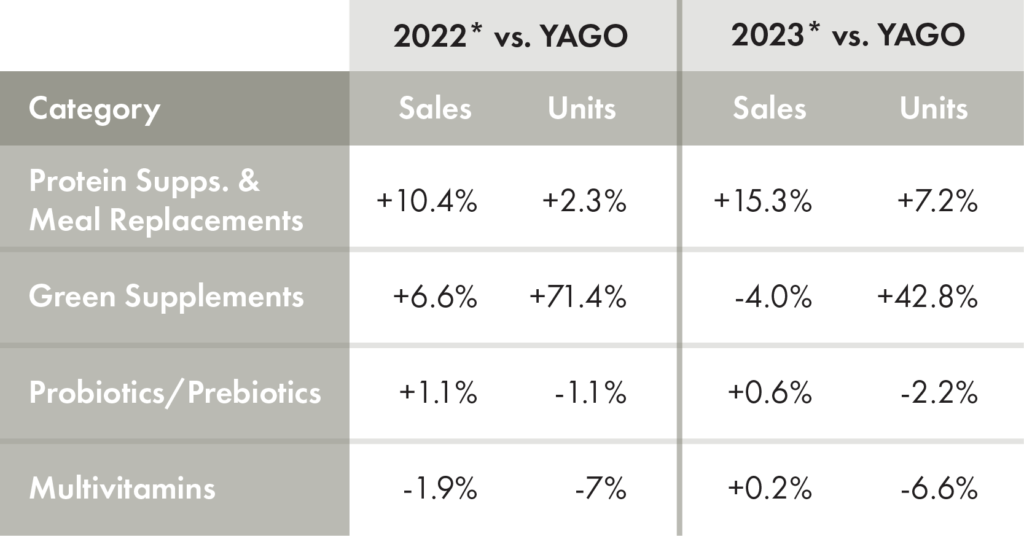
A New Era of Weight Loss
From the rise of new medications to the decline of traditional supplements, the landscape of weight management is evolving rapidly. As weight loss methods shift, nutraceuticals are becoming more important in supporting weight loss with different categories looking to fill the nutrition gaps.
The global women’s health and beauty supplement market reached $53.4 billion in 2022 with expectations to reach almost $80 billion by 2030. Nutricosmetics, where nutrition meets cosmetics, is revolutionizing the way we approach beauty that focuses on enhancing beauty from the inside out, using dietary supplements and functional foods to support and improve skin, hair, and overall appearance. The rising demand for natural and effective solutions, shifts the focus towards ingredients that support internal health, ultimately reflecting on the outside.
The Decline of Weight Loss Supplements
About 42% of U.S. adults age 20 and older were considered obese between 2017 and 2020, according to the Centers for Disease Control and Prevention (CDC)1. For years, weight loss supplements dominated the market, promising quick fixes and miraculous results. While weight loss is still a focus of many consumers, recent reports show a decline in sales of weight management supplements. In fact, sales have declined over the past three years according to market research firm SPINS. For the 4 weeks ending November 3, 2023, sales of weight loss supplements totaled at $32.8M, the lowest it has been for any 4-week period over the past three years.
Many are now skeptical about the efficacy and safety of weight loss supplements, leading to a search for more reliable and scientifically backed options. Alternative ways to control and manage weight range from diets such as Keto and veganism to medications like Ozempic.
The Rise of Weight Loss Medications
Enter the new era of weight loss medications. Drugs like Ozempic, originally designed for managing type 2 diabetes, have gained attention for their potential weight loss side effects. Alongside other medications such as Wegovy and Zepbound, these options are becoming more widely prescribed and recognized for their effectiveness in aiding significant weight reduction.

Ozempic was approved in 2017 by the U.S. Food and Drug Administration (FDA) for use in adults with type 2 diabete. However, it has garnered most of its attention in the weight loss arena. The active ingredient in Ozempic, semaglutide, does work for weight loss, according to research. By mimicking the effects of a hormone called GLP-1, semaglutide helps regulate appetite and food intake, leading to substantial weight loss in many users. While Ozempic is not approved for weight loss, semaglutide is approved for weight loss under the name Wegovy, which has a higher dose of semaglutide than Ozempic. Wegovy is a once-weekly injection approved by the FDA in 2021 for chronic weight management. It’s the first drug approved for this purpose since 2014.
As of July 2023, there are reports of a drug shortage involving Ozempic and Wegovy. When people use Ozempic off-label for weight loss, type 2 diabetes patients who rely on Ozempic may struggle to find this medication.
Supplements Can “Fill the Gaps”
While medications like Ozempic are transforming weight loss strategies, it is predicted that consumers will opt for supplements to satisfy proper nutrient intake when dealing with appetite loss. A report from SPINS predicts that spending habits may shift to supplement categories that ensure they are getting the daily nutrients they need.

Nutraceuticals and nutrition supplements, collectively referred to as dietary supplements, are intended to add to or supplement the diet and are different from conventional food. According to the latest Nutrition Business Journal, vitamins and Specialty Supplements are the two largest supplement categories, making up over 40% of the $64.28 billion supplement industry market.

Vitamins are various organic or synthesized substances that are essential in minute quantities to the nutrition of most animals and some plants, act especially as coenzymes and precursors of coenzymes in the regulation of metabolic processes but do not provide energy or serve as building units. They are present in natural foods or sometimes produced within the body.

Specialty supplements do not fit into the other supplement subcategories and are designed to assist with certain health goals and lifestyle needs such as joint health, sleep support, and beauty. They can include glucosamine, melatonin, DHEA, fish oils, bee products, amino acids, homeopathic remedies, probiotics, prebiotics, colostrum, and other oils, enzymes, and hormones.
In the age of social media, viral videos on these platforms have been able to influence sales. For example, Berberine supplements went viral on TikTok and other platforms after being dubbed as “Nature’s Ozempic.” It proposes similar benefits to Ozempic including claims to help lower blood sugar and aid in weight loss. At its peak, the hype translated into increased sales by 40% compared to the 4-week period prior according to a recent SPINS report.
As we navigate the evolving landscape of weight loss, it is clear that the industry is shifting away from traditional weight loss supplements. With their decline and the rise of medications, alongside the growing popularity of nutraceuticals, individuals have more options than ever to support their health and wellness goals.


